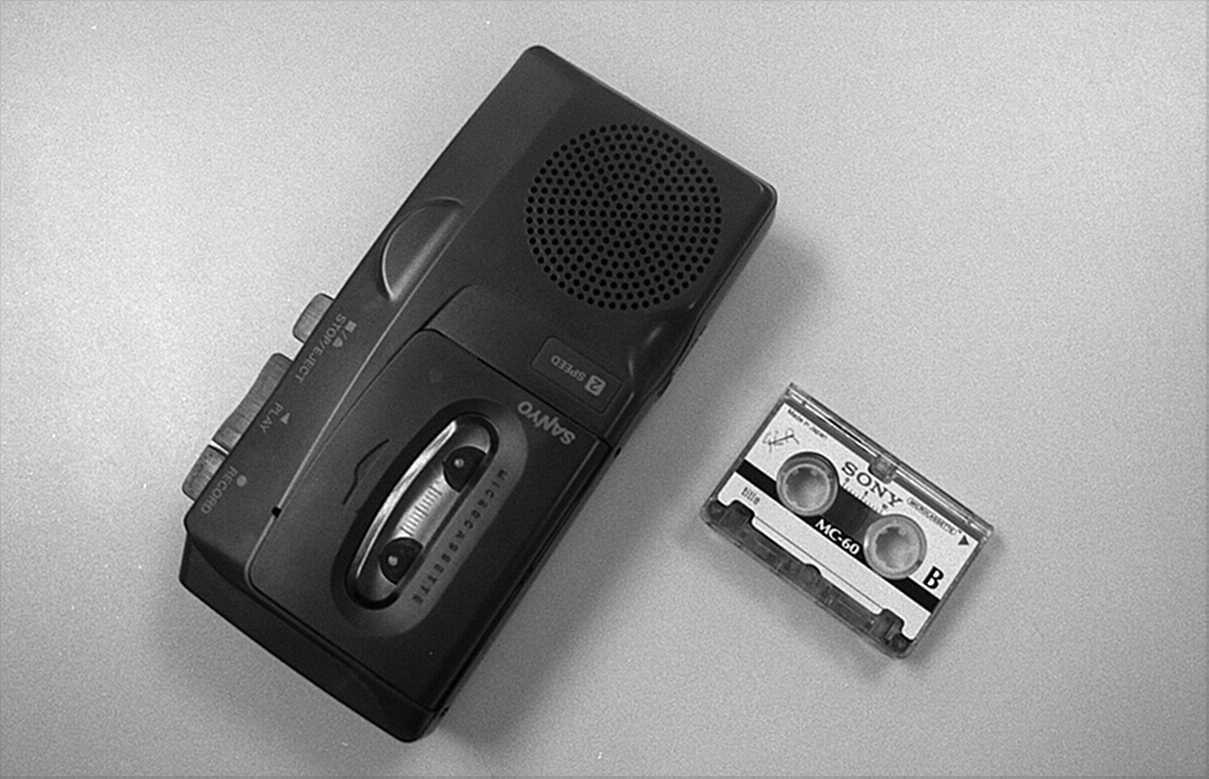The iconic scene of Peter Quill listening to Awesome Mix Vol 1 on his walkman at the beginning of Guardians of the Galaxy already hinted that something was happening. In the fourth season of Stranger Things, Max walks through the halls of Hawkins school with a Kate Bush cassette in her player. The series shares a certain melancholic vibe with Perfect Days by Wim Wenders, where the protagonist Hirayama's tapes are an ode to the beauty of simplicity. The three have a common denominator, the props: cassettes are back.
Amid the tsunami of fascination for retro, one cannot help but wonder if the cassette tape craze could replace vinyl mania: both are mediums that have ceased to be relics and have become cult objects, a kind of fetish for superfans. The answer, however, is not so clear, as it substantially depends on the market. The numbers speak decisively in certain countries: between 2015 and 2023, after years of decline, cassette tape sales in the US increased by 443%. In the UK, around 600,000 units have been sold in the last six years. And in Japan, the demand for cassette players has multiplied by 10, and over 3,000 titles have been released in this format.
"The cassette is a medium that helped bring private listening at home to the public space thanks to devices like boomboxes. Nowadays, it doesn't make much sense because we have that possibility perfectly integrated into our mobile phones, but it's still attractive," explains musicologist Sandra Muñoz. Japanese companies like Sony or Toshiba have reissued discontinued models of players due to the growing demand from Generation Z, while other emerging firms, like NINM Lab, add some functionalities like Bluetooth to the classic player. Alongside analog cameras, walkmans are also a sought-after item in second-hand stores and in the big marketplace, Wallapop.
"A family once came from the Canary Islands because their 12-year-old son wanted to buy a walkman from us. He brought all his savings and had an incredible look of excitement," says Luis González, owner of La Cassettería and founder of the small record label Ciudad Oasis. In 2021, González decided to open Spain's first cassette tape factory-workshop, alongside a store entirely specialized in this medium in central Madrid. "There was no competition in the market because a few years ago, no one was manufacturing cassettes here as they did in the 80s; everything was imported from abroad. We brought duplicating machines from England."
After "sacrificing" the physical store in June, they will open an online store in a few weeks, allowing them to expand the project. "Between new and second-hand cassettes, we will have around 2,800. There was a boom a couple of years ago; all kinds of profiles were asking for them." However, in Spain, they still represent a tiny fraction of the total. In 2023, cassette sales contributed only 0.06% to total physical music revenues, according to the latest report from Promusicae, the association representing the Spanish music industry. Its president, Antonio Guisasola, points out that the target audience is a specialized consumer seeking "different content with a high nostalgic component."
In this niche are millennials and centennials, nostalgic for a time they did not experience: the 80s pop culture. In a world dominated by digital experiences, this concept is as novel as romantic to them, acquiring a deluxe collectible aspect, a couple of steps above traditional merchandising. "Cassettes are so well-received because they become a way to have something tangible from the artist, which for the new generation of consumers is a coveted item that gives more meaning to the purchase of something belonging to their favorite artists," emphasizes Antonio Guisasola.
International stars like Taylor Swift, Billie Eilish, and Harry Styles have contributed to boosting this phenomenon with the release of albums like The Tortured Poets Department, Happier Than Ever, and Harry's House also on cassette, thus solidifying the comeback of this vintage medium. "The most expensive tape I've sold was one of Taylor Swift's Lover, for 50 or 60 euros; we had only one unit, and a collector in their twenties bought it. There is a lot of speculation on resale platforms, and they are hard to find," González recalls.
Although users still mainly consume music through playlists on streaming services like Spotify or Apple Music, "the sensations provided by analog formats are different and special", according to Muñoz. The cassette encourages listening to full albums without interruptions, isolated from the world: "It allows for a real digital disconnection, just like vinyl: you forget about your phone or computer for a while and dedicate yourself to actively listening to music. I believe the trend comes precisely from that need to disconnect and that paradoxical rejection of an ultra-digitalized world."
What some experts see as a welcome change, others see as a farewell. Billboard's annual report on music consumption revealed that the LP format, progressively growing since 2019, decreased by 33% in sales last year. Nevertheless, for Guisasola, vinyl "continues to show signs of growth and doesn't seem to have reached its peak yet."
Considering the current state of cassettes... what future awaits them? Promusicae warns that record labels "are not investing much" in this format to increase its popularity among new generations. Social media are, for now, their main promoters. "It's an inconvenient format to listen to; the concept needs to be rethought. But there is no doubt that it holds great sentimental value," González concludes.
